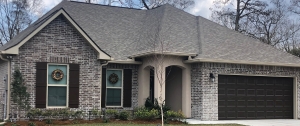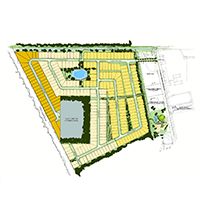 The housing market is tough right now if you are searching for a place to live. In fact, CNN reports it is the most expensive housing markets in recent history. The National Association of Realtors says that home prices are at an all-time high while rentals have gone up 20% in just two years. If you have to make a move, and you don’t know whether to rent or buy, here are some questions to ask yourself.
The housing market is tough right now if you are searching for a place to live. In fact, CNN reports it is the most expensive housing markets in recent history. The National Association of Realtors says that home prices are at an all-time high while rentals have gone up 20% in just two years. If you have to make a move, and you don’t know whether to rent or buy, here are some questions to ask yourself.
Where do you live?
Realtor.com reported that in over fifty percent of the fifty biggest cities in the United States, it is more affordable to buy a starter home than it is to rent a similar-sized rental. This is not the case in all communities across the country. In some areas, home prices increased so high in such a short amount of time making it more affordable to rent rather than buy a home. Places in the country that were reported as a better place to rent were Austin, New York, San Francisco, San Jose, Seattle, Boston, Rochester, Portland and Los Angeles. Cities, where it was more beneficial to purchase a home, were Birmingham, Cleveland, Pittsburgh and St. Louis.
Are you financially fit?
Sometimes the decision on whether to rent or buy stems from if a person is ready to be a homeowner. Several questions to ponder are What does your savings look like after a down payment is taken out? What is your credit score? Do you qualify for a mortgage? Can you make the monthly payments?
If you are in the market to purchase a home, make sure you are financially stable. A good rule of thumb is to have six months’ worth of expenses saved up, have at least $10,000 in cash to cover closing costs and moving expenses, and have a good credit score of 720 or higher.
“The emergency savings is of high importance and the 720 credit score has more wiggle room,” Andrew Dressel, a financial planner with Abundo Wealth in Minneapolis said.
“They need to also make sure they are not sacrificing their retirement or other goals just to own a home right now,” Dressel said.
How long will you live there?
If you are going to live in a place short term such as two or three years, then renting is best. Even with the low-interest rates, there is no need to rush into purchasing in this seller’s market. “When interest rates are lower, that puts upward pressure on housing prices,” Jay Abolofia, a certified financial planner with Lyon Financial said. “Just because interest rates are low doesn’t mean it is a good time to buy and higher interest rates doesn’t mean it is a bad time to buy a home.”
If you are planning on staying in a home for a longer period of time then your best bet is to buy. Moving every two to three years can get very expensive.
What are your monthly payments?
Before taking a leap into homeownership, look at your finances. Look at what your cash flow would look like with monthly mortgage payments. According to Noah Damsky, a chartered financial analyst with Marina Wealth Advisors in Los Angeles, your mortgage monthly payment should not be over 35% of your gross income. This is a little higher than other leaders in the industry suggest. Many will say to only use around 25%.
Even when you are saving on tax benefits of homeownership, you still need to be conservative. “I try to temper their expectations by explaining that the tax benefits will often be substantially offset by a roughly 1% annual maintenance cost,” says Damsky. You want to budget around 2% to 3% of a home’s value to cover upkeep and maintenance.
If you are trying to decide which avenue is best for you, check with a local Realtor in your area. A Realtor can help you both rent and purchase a home.

